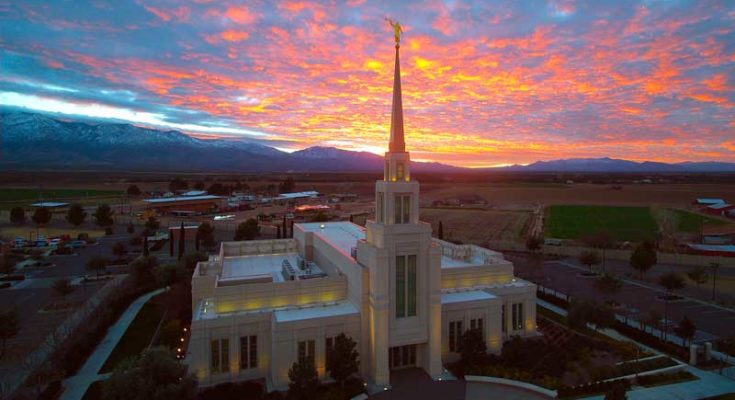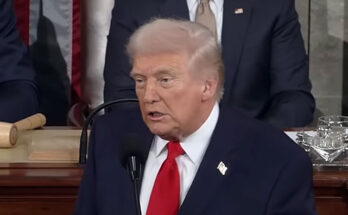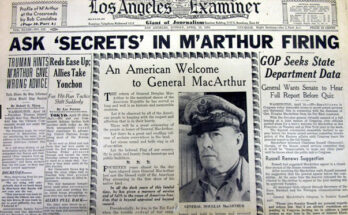Column By Mike Bibb
“Congress shall make no law respecting an establishment of religion, or prohibiting the free exercise thereof; or abridging the freedom of speech, or of the press; or the right of the people peaceably to assemble, and to petition the Government for a redress of grievances.”
First Amendment to the United States Constitution, ratified Dec. 15, 1791
Years ago, before the passage of the 16th Amendment and the shelves of tax regulations became an accepted reality, politics and government policies were frequently discussed within church chapels and classrooms.
In fact, the 1st Amendment of the United States Constitution guarantees everyone has the “free exercise of religion,” and “the freedom of speech,” and the right “to peaceably assemble” to discuss issues of public interest — within the same paragraph.
Obviously, the Framers of the Constitution believed these were not separate and unrelated rights that should be limited to church buildings, any more than they could be restricted to political rallies, newspaper editorial pages, or podcasts.
Free speech is the heart and soul of a free society, which is probably the primary reason our Founders placed it at the beginning of the original ten amendments, also known as the Bill of Rights.
That, and Colonists had grown tired of being told what to do, when to pay taxes, and rules to obey issued from the monarchy in England. After the establishment of Jamestown, Virginia, in 1607, tensions between the two societies gradually escalated to a breaking point over the next 168 years.
A “Declaration of Independence” was enacted by the thirteen colonies on July 4, 1776. In essence, it was a list of grievances detailing the abuses inflicted by the English Crown.
A bold move by a small struggling nation against the “Super Power” of the world at that time. England had a large army and navy to enforce its edicts upon their various subjects, and it was thought the minor disturbances caused by the colonies scattered along the Atlantic Coast in North America wouldn’t be a serious problem to remedy.
Obviously, things turned out differently, and the United States of America enacted its own Constitution of individual rights on Dec. 15, 1791.
Fast forward a couple of centuries, and we find ourselves in a similar dilemma as the Colonists. Only, the rules and edicts are not coming from London, but our own nation’s capital, Washington, D.C.
Additionally, during that period, corporations of various descriptions and sizes became increasingly common. Some were private, others public. Some were business-oriented while others were more civic-minded. Some built railroads, oil companies, automobiles, and steel plants. Others created large churches and charities.
These are all legitimate organizations with their own ideas and business models. Likewise, they all enjoy the same Constitutional provisions.
But in 1913, the 16th Amendment to the Constitution — the Income Tax — changed the rules.
Essentially, Congress enacted a law stating that “Income, from whatever the source” would be subject to federal taxation. It wasn’t apportionment (divided among the states) or census-based (based on population).
It was strictly intended to collect taxes on “incomes.” In much the same way, taxes are collected on sales, fuel, or property. A tax is usually named by the object it is placed upon. As a result, an “income tax” is an income tax. That’s all it is — not mysterious or complicated to figure out.
It is not a tax on wages, salaries, or other remuneration an individual may receive, as the Constitution already forbade that. A person has the right to work and be paid for their labor without the government claiming a percentage of it, unless everyone pays the same rate as established by the number of states and the population (as determined by the census).
Suppose a person is paid a million dollars, and the government needs 10% of it. In that case, a person who earns a hundred dollars also pays 10%, since each is paying an equal percentage for the same amount of government services, regardless of their financial circumstances.
On the other hand, most businesses generate revenue through the sale and provision of services or products. The profit or gain a company receives from these sales and services — after deducting operating expenses — is known as “income.”
Yet, churches and charitable corporations are treated a little differently. Their “incomes” consist of “tithes, donations, and offerings” from whatever the source. Still, they exist within a corporate structure subject to the laws that enable them to conduct their particular business. They, too, file annual tax forms to substantiate their tax status and obligations.
So, what does the 16th Amendment have to do with the 1st Amendment — aren’t they two distinctly different topics?
Yes, they are. One deals with an individual’s rights, while the other is related to business and corporations.
Except that businesses, corporations, and churches consist of individuals, who, as we know, have certain “inalienable rights” which cannot be infringed upon.
As mentioned, primary among these is free speech — that naturally includes a person’s opinions, as well as their agreements and disagreements with others.
Since churches in the United States vary in their theologies, preaching, and teaching techniques, they are required to respect a church member’s opinions and right to express them without being subject to censorship.
Church officials and members may not agree on everything, but unless a member has committed a grievous offense against a church’s doctrines — and has been rightfully determined to have done so — silencing or expelling the member is probably not an appropriate response.
Sort of like being “impeached,” in political parlance. A person may be excommunicated from a particular church, but he is not jailed for it. He can choose to attend another church if he wishes.
Consequently, a return to discussing current topics of interest among church members could provide a meaningful alternative to intentionally ignoring some of the issues facing us today. Maybe a 20-minute “open mike” period within the normal sacrament/sermon time would be appropriate.
Let’s face it, politics and what happens in states and our national capital affects all of us, whether we like it or not, or agree with it or not. Even local politics, to a certain extent, is a fundamental part of the mix.
Consequently, it was customary for people to discuss political issues when they gathered in church, as that was a convenient place to hear and hash out ideas and opinions.
Today, we have cell phones and “social media” to express ourselves. A convenient addendum to free speech, but not like the real thing, where folks are face-to-face, seeing each other’s expressions, body reactions, and voice inflections.
Why not try this again in church? Those who wish to participate can, and those who do not also have that right. However, the session should not be allowed to turn into a political pep rally for a particular candidate, although a candidate could be allowed to announce and express his ideas. These brief conversations would strictly be an opinion session regarding church members’ thoughts and views on whatever they wish to discuss.
With the proliferation of politically biased corporate media — echoing the ideologies of their particular favored party — we are almost overwhelmed by the constant drumming of whatever it is they are promoting. To such an extent, our brains are nearly numbed by what we see and hear on TV, radio, newspapers, and phones.
It’s a 24/7 onslaught, leaving little time to really decipher the content.
Perhaps a brief break during a Sunday church meeting to listen to the concerns of our fellow congregants would be a welcome relief from the perpetually scripted and financially driven voices we regularly succumb to.
Until finally, if we’re able, we change the channel, press the mute button, or simply turn the damn thing off.
We know the drill; we understand how the game is played and are fully aware of the frailty of promises we hear from a large portion of officeholders and bureaucrats, and instinctively sense it’s a big waste of time. For the most part, the legitimacy of their campaign pledges is smoke and mirrors to divert attention from their real intentions.
Instead, we should listen to what our neighbors think and say about specific topics. They may not have degrees in economics or law, but they’re smart enough to realize that a government cannot tax its citizens $1 and then spend $5 without the checking account quickly plunging into the red.
And, repeat these careless errors over, and over, and over. Eventually, you end up $37 trillion in debt, without a ladder to climb out of the pit.
More importantly, no one in Washington is willing to accept the blame. Instead, they point fingers at everyone but themselves. So, the spending, taxing, and borrowing continue. . . as if everything is fine as frog hair.
Unfortunately, a financial cliff is just ahead and we’re rushing toward it — ignoring the warning signs and flashing lights — as rapidly as Congress can spend our money and then tell us what a great job they’re doing.
The “Congress will go broke at midnight tonight” is a familiar chant we hear a couple of times a year. No one really pays any attention to it because, for the most part, it’s a Chicken Little tale. Congress finagles numbers and books, a few departments of government may close for a couple of days, and when it’s over, we’re back to the same old routine — only a trillion or two more dollars in the hole.
If we balk at their behavior, or disapprove of the way our taxes are being abused, we’re reminded, “File your taxes on time. No one is above the law”; a cautionary suggestion a person could be audited if he complains too much.
Which seems counterintuitive. The more taxes we pay, the more we owe, and the deeper in debt we go.
Something isn’t adding up. Perhaps the folks at church could comment on the apparent contradictions and explain why we should be compelled to continue throwing good money after bad, year after year, regardless of which political party is in power.
Almost as if it’s “Good public policy, and the right thing to do,” when common sense screams otherwise.
I’ll be glad when we return to serving real wine during communion. I need something a little more substantial than a quarter-ounce of watered-down grape-flavored punch!
The opinions expressed in this editorial are those of the author.












